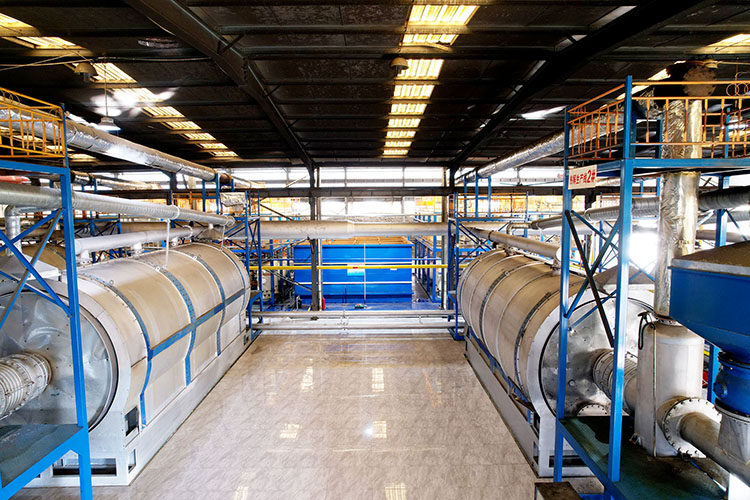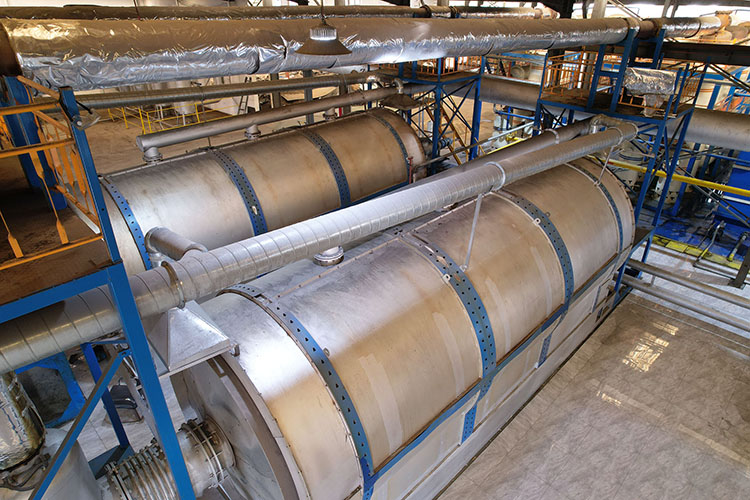With the continuous enhancement of global environmental awareness, the recycling and reuse of waste tires has become an urgent problem to be solved. Waste tires not only occupy a large amount of land, but also cause serious pollution to the environment. However, through advanced waste tire refining equipment, we can not only effectively treat these wastes, but also extract high-value fuel from them. This is not only a major progress in environmental protection, but also brings huge economic benefits to enterprises.
When selecting waste tire refining equipment, the oil yield is undoubtedly one of the most critical indicators. High oil yield means higher resource utilization efficiency and greater economic benefits. The equipment adopts advanced thermal cracking technology, which decomposes waste tires into fuel, carbon black, and steel wire through high-temperature cracking. Compared to traditional methods, our equipment can minimize energy loss and improve fuel extraction efficiency during the decomposition process. It is also equipped with an efficient and energy-saving heating system, which can quickly reach the required cracking temperature and maintain stability. This not only ensures a high oil yield, but also greatly shortens the processing cycle and improves overall production efficiency. The equipment is also equipped with an intelligent control system that can monitor and adjust key parameters such as temperature and pressure in real time, ensuring that the entire refining process is carried out in an optimized state. This not only improves the fuel yield, but also ensures the quality of fuel products.

The high oil production rate is directly related to the economic benefits of enterprises. By using waste tire refining equipment, enterprises can quickly recover their investment and achieve sustained profit growth. A high oil yield means that for every ton of waste tires processed, more fuel can be extracted. These fuels can be directly used for power generation, industrial boiler combustion, and even further processed to become light fuel oils with high market demand. In addition to fuel, the thermal cracking process also produces carbon black and steel wire. These by-products also have high market value. Carbon black can be used to produce rubber products, cables, inks, etc., while steel wire can be directly recycled and reused. Diversified products not only increase revenue sources but also reduce market risks. Various regions have corresponding subsidy policies for environmental protection projects. By using waste tire refining equipment, not only can direct economic benefits be obtained, but also policy support and subsidies can be enjoyed, thereby further reducing costs and improving profitability.

The waste tire refining equipment, with high oil yield as its core competitiveness, combined with advanced thermal cracking technology, efficient heating system, and intelligent control system, has brought significant economic and environmental benefits to the enterprise. With the support of environmental policies, not only can efficient disposal of waste tires be achieved, but also considerable profits can be created for enterprises. Choosing waste tire refining equipment means choosing an efficient, environmentally friendly, and sustainable future.
Yongle Environmental Protection is mainly engaged in the research and development, production and sales of complete sets of technical equipment for organic solid waste disposal and comprehensive utilization. Production and manufacturing, domestic waste treatment equipment, tire pyrolysis equipment, medical waste disposal equipment, hazardous waste disposal equipment, and achieve efficient and comprehensive utilization of resources through independently developed low-temperature anaerobic pyrolysis equipment technology solutions.
Tags:Detailed explanation of the oil output rate of waste tire refining equipment,waste tire refining equipment,YONGLE GROUP
 Latest news
Latest news


























